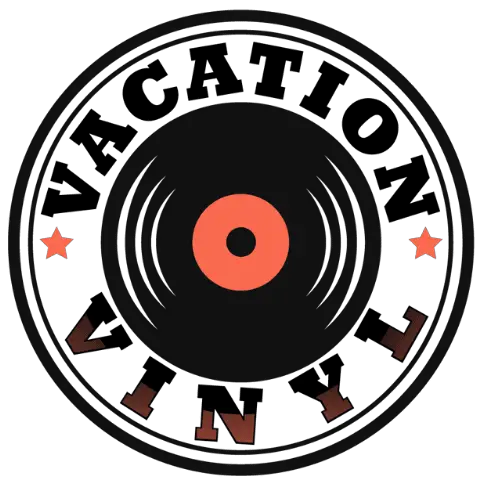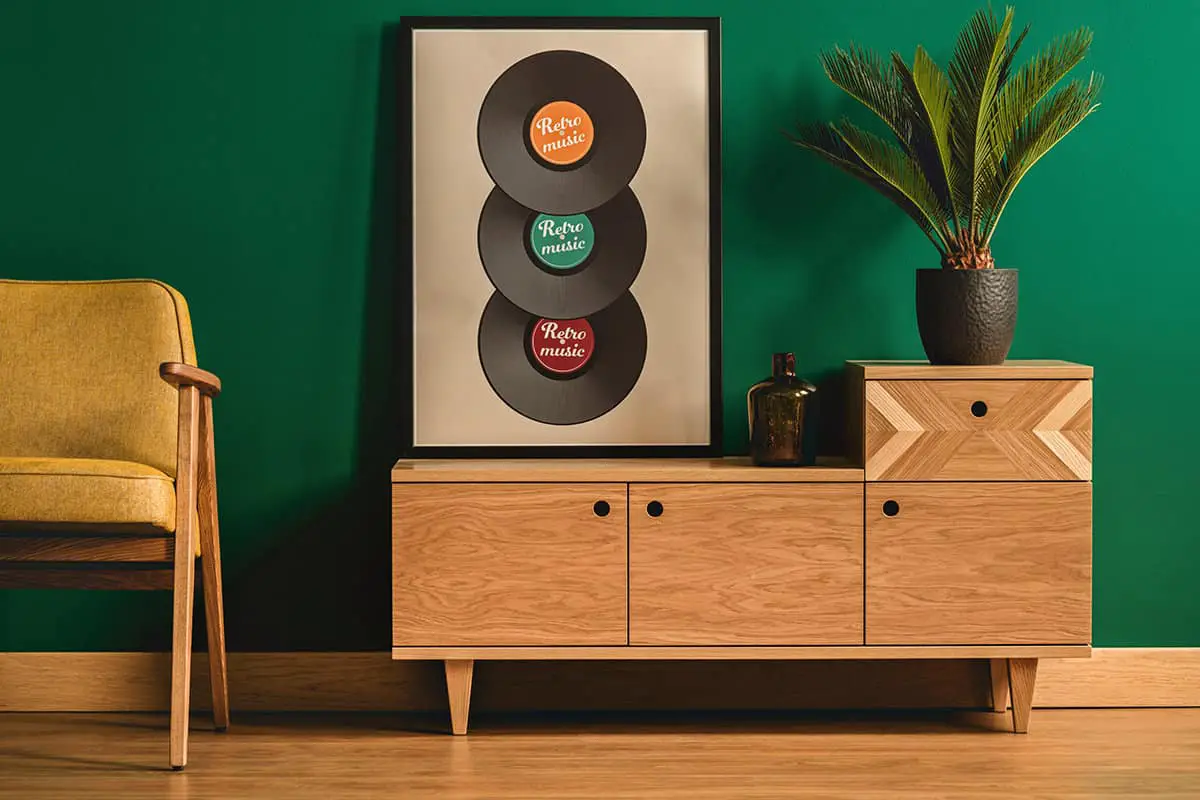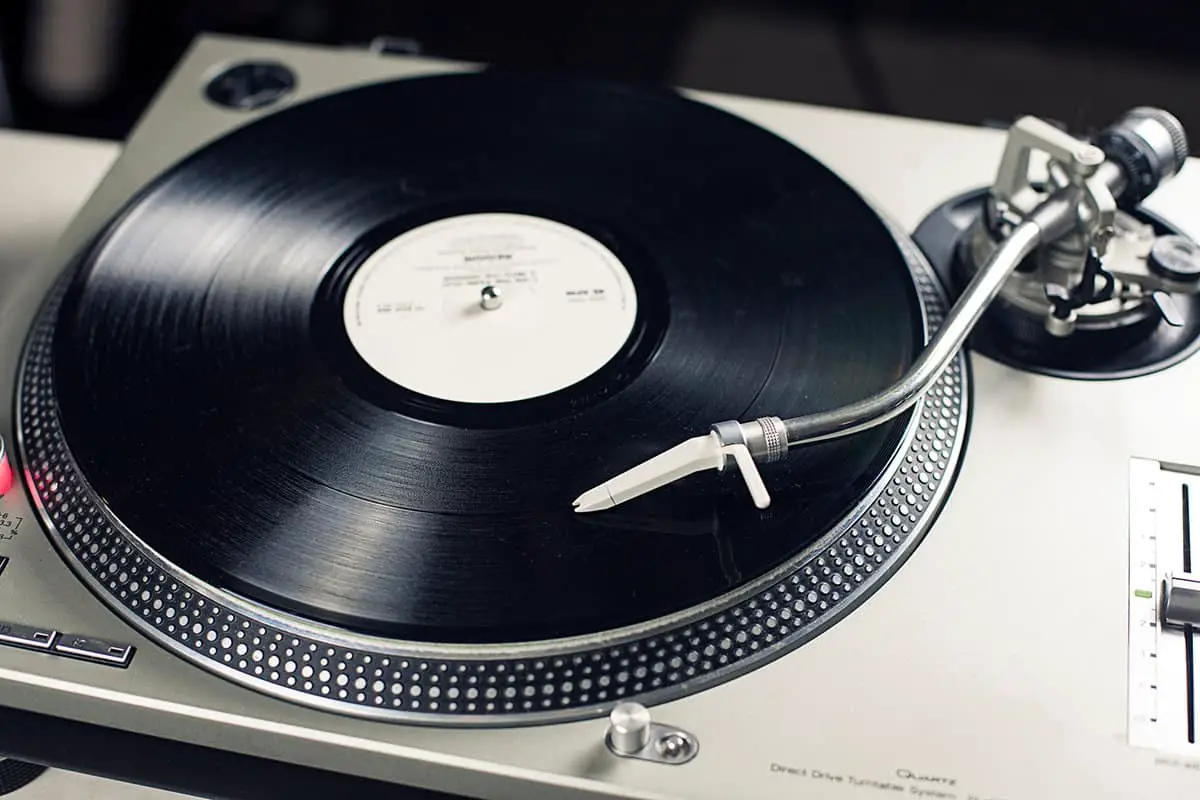This post contains affiliate links.
Is it bad to play a warped record? You wouldn’t want to damage your record player, stylus, or even your amp and speakers with audio pops or other sounds caused by record damage. However, just how safe is it; is it OK to play a warped record? Let’s find out.
Playing a warped record may damage the record further if the warp causes the stylus to skip. A skipping stylus can scratch the record grooves causing irreparable damage. So, if you want to protect your records, don’t play them when warped.
Let’s jump into vinyl record warping more and find out a few more things, like whether or not we can fix a warped record or why they warp in the first place so we can do our best to prevent damage. Join me as I take you through my experiences with warped vinyl records and what you need to know about them.
Table of Contents
Can A Warped Record Damage My Record Player?
Some people have claimed that a warped record may damage your stylus or record player. It would only be the case if the record were so irreparably damaged that you likely wouldn’t consider attempting to place it on your turntable. I think large cracks would do it, but a slight warp is not likely to damage anything except the record itself (from stylus skip and scratch).
Warped records will not damage your record player. Cracked records will.
Why Records Warp In The First Place
Vinyl records are exceedingly popular. So much so, in fact, that vinyl records have seen growth year after year for the last 15 years. Over 27.5 million LPs were sold in the USA in 2020, according to Statista. (source)
The exceeding popularity of records means more and more people like yourself have the same issues with warped records. I’ve often had the problem myself, usually from one of the following scenarios that cause records to warp.
Vinyl Records Warp When:
- Left in the sun
- Left in the heat
- Stored improperly
These are the three common scenarios that cause vinyl records to warp. Here’s why each is important to understand.
The Sun And Warping Your Vinyl Record
The sun is incredible. A source of happiness for most people, encouraging our vitamin D3 production and giving us a nice tan. However, this same source of joy, warmth, and light is an enemy to our nightlife-loving vinyl records.
Vinyl records are made of vinyl, as the name suggests. This type of material is a form of plastic. The scientific name of the plastic is polyvinyl chloride, but you’re probably familiar with it being called PVC. (source)
PVC is one of the most versatile plastics humankind has ever invented. We use it because it is straightforward to work with, a soft and versatile plastic we can shape and use as we see fit.
One of the primary characteristics of PVC is the versatility to make either soft or rigid plastics.
Vinyl records use a semi-rigid form of PVC. You know you can pick up a record and give it a bit of flex; it isn’t like glass – it won’t shatter straight away but has a bit of flex.
When you leave Vinyl, in particular a vinyl record, in the Sun, the rays of the Sun heat the plastic and react with it.
The addition of heat from the Sun’s rays causes the plastic to begin to melt. We’re not talking a sticky, gooey, burn-your-fingers kind of melt, but it’s enough to cause the record to warp. If left without a sleeve, the Sun will cause irreparable damage in a short period. It will still damage the record with a sleeve, but it will take longer (like a few hours, in my experience).
Heat And Warping Vinyl Records
Similar to sunlight, straight heat will melt a record. For example, I once left a copy of Armando’s Land of Confusion’ on a water radiator. Let’s just say the record looked like Salvador Dali’s clock the following day.

Storing Records Improperly Or How To Warp Your Vinyl
As vinyl records are semi-soft plastic, they are easy to deform. Even easier to deform if you add time and pressure (we’ll chat more about that later when I tell you how I’ve fixed warped records of mine). When you store your vinyl, the best way is to use a hard case and keep the vinyl neatly stacked on edge. However, there’s a trick to this you NEED to know:
Never stack vinyl upright, on edge, without support!
For example, let’s say you have a record box that holds 50 records in their sleeves. However, if you only have 20 records in the case, the extra space causes the records to slump over, leaning on an angle against the side of the case.
You might think, “What’s the big deal, the records are protected?” But, they are leaning. Leaning records over time will warp, guaranteed. I’ve lost many a record to warping from foolishly leaning a stack of records. Always store your records vertically but ensure they are supported and not leaning on an angle.
Do Warped Records Produce Poor Sound Quality?
You’ve got a warped record but want to play it – is it going to sound like garbage? To answer this question, we need to look at a couple of factors.
- Extent of warp
- Quality of turntable arm balance
The extent of the warp of a record will determine the extent of sound quality damage. When severely warped, the sound may ‘warp’ as well.
RPM may sound like it speeds up or slows down momentarily. The pitch can shift slightly, and sounds may become distorted. However, the worst of warps will cause your stylus to skip, potentially scratching your vinyl record.
The turntable has some responsibility to accommodate for a slight amount of warp. As you likely know, a stylus needs to grace the grooves of a record gingerly. You can adjust the counterweight of the stylus tone-arm to accommodate different scenarios by making the stylus lighter or heavier weight against the record.
A quality turntable with an adequately balanced stylus arm will accommodate for minor record warping. Inferior quality turntables will have a much higher chance of stylus skip on warped records, potentially causing the stylus to scratch the vinyl surface.
Why Playing Warped Records Is Bad (For The Record)
As I mentioned earlier, from my experience, a warped record holds zero threat to your stylus or turntable. However, if the warp is bad enough, the warp may pose a further threat to the record itself.
With a badly warped record and an unbalanced or poorly set up tone-arm, your stylus can skip grooves on the warped record. The skipping stylus can damage the record.
When a stylus skips a groove, it can scratch a notch connecting parallel grooves inscribed on the vinyl record. This damage, in turn, causes further skipping, and the record now has irreparable damage that cannot be easily fixed and often renders the record into a nice round paperweight.
Can I Fix A Warped Record?
It’s that one downbeat on that one track playing in your cans that you just can’t let go of, even if the record is warped like a banana. And, unfortunately, you can’t buy any more either. So, what can you do to fix a warped record? There are few options, but you’re luck better be good, or you’re out of hope. Here are a few techniques I’ve found tend to work well (or not, read on to find out) on repairing warped vinyl records: time/pressure, time/pressure/heat, and specialty record straightening equipment.
Time And Pressure
I genuinely hope you have patience. I’m not talking about waiting a few hours here; I’m talking days or even weeks. Here’s how to fix that slight to medium warp in a vinyl record:
- Carefully inspect and clean the warped record. It must possess zero dirt. A sand particle can destroy a record if pressed into it, ensuring it’s clean and free of debris.
- Find a ludicrously flat surface. I use my marble kitchen counter. It must be perfectly smooth, perfectly flat, and clean.
- Keeping the record in its protective sleeve, place the record on top of a piece of cardboard (again, clean and smooth and flat), on top of the flat surface (like a stone countertop).
- Place the second piece of cardboard on top of the record; the same with cleanliness and smoothness applies.
- Set a weight on top. The weight must be big enough to cover the entire record and just as flat and smooth as the surface it’s sitting on. I use a smoothly sanded piece of plywood and then place a few standard house bricks on top.
- Wait and then wait some more. This process of weighting to re-shape the record has taken me anywhere from 3 to 6 weeks, depending on the extent of the warp. Make sure you don’t use too much weight either; you can cause damage to the record. That’s what I learned the first time I did this method, so use the cardboard as a protective buffer.
Time, Pressure, And Heat
The following method I’ve used to fix my records is the same as the first, except I apply heat. I learned this trick when I was gardening. True story: I was germinating tomato seeds, and they love the heat. I use under-tray heater pads fabricated to speed germination time. You can buy them at most garden centers.
I found using two of these tray heaters for seed germination speeds the process of repairing warped records by a significant factor. Instead of waiting weeks, I’ve fixed records in days using this heat and press method. It works best on severely damaged records.
Follow the steps listed above for the time and pressure technique, but add the hard surface and cardboard heating pads. The heat will transfer just enough through the single layer of cardboard and your record sleeve to gently warm the vinyl to aid in pressing.
Specialty Equipment
Yes, you can actually buy a machine to fix warped records. I’ve got one thing to say about these: extremely overpriced junk. It is the tool some have purchased just to find out that it doesn’t work very well. I had a friend who used one of these and destroyed a vintage house record from the 80s. It was the first time I ever saw him cry. Needless to say, you’re better off using the first or second technique I’ve described and tested.
Have you had experiences with warped records or repairing them? I’d love to hear your methods or even your successes using my methods above. Let me know in the comments below if you have a great trick to help other vinyl lovers with their music.
VacationVinyl.com is a participant in the Amazon Services LLC Associates Program, an affiliate advertising program designed to provide a means for sites to earn advertising fees by advertising and linking to Amazon.com. We also participate in other affiliate programs which compensate us for referring traffic.




